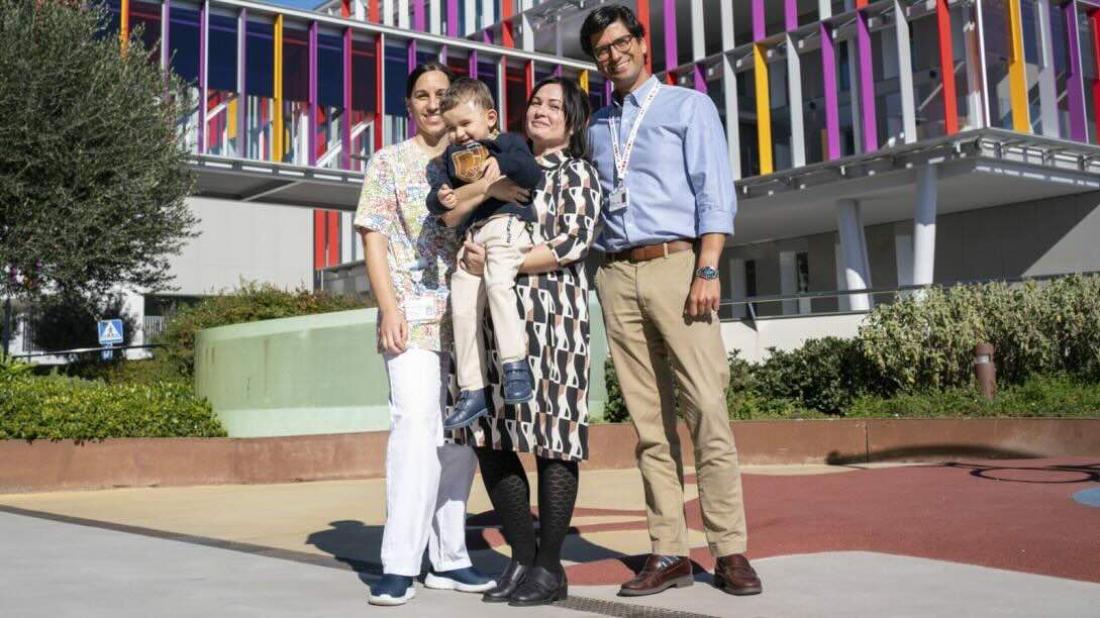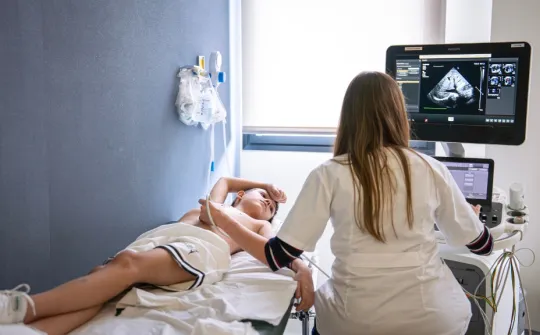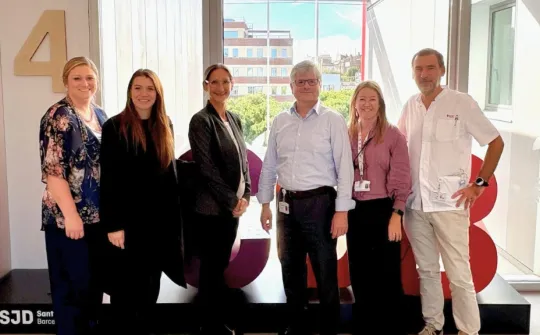
Success made possible by precision oncology program at SJD Pediatric Cancer Center Barcelona to identify molecular alterations in patient tumors and establish personalized targeted therapy.
Professionals from the SJD Pediatric Cancer Center Barcelona (PCCB) have successfully treated a boy with an incurable brain tumor with two drugs usually used for lung cancer in adults. The boy’s care team prescribed the treatments after analyzing the tumor across different phases of disease progress, revealing genetic alterations that evolved over time and made a change in targeted therapy necessary.
The SJD Pediatric Cancer Center Barcelona precision oncology program has benefited over 400 patients since 2019 and makes it possible to not only more accurately determine what cancer type each patient has but also identify molecular alterations in their tumors that enable personalized targeted therapies to be offered in accordance with the genetic alteration involved. That is what was done in the case of this patient. Makar was diagnosed with a serious brain tumor, an infant-type hemispheric glioma, in 2019 at just one year of age. He was operated on and treated with chemotherapy in his hometown of Saint Petersburg, but to no avail.
No therapeutic options for the glioma at his local hospital
When his oncologists at home could no longer offer any option, Makar’s family reached out to the international patient care department of the SJD Barcelona Children's Hospital and sent a small tumor sample so the precision medicine team at the cancer center could perform a molecular biology study.
The molecular analysis revealed that Makar’s tumor had an alteration involving the ALK gene, common in lung cancer in adults. “By identifying this alteration,” said Pediatric Cancer Center Barcelona Healthcare Director Andrés Morales, “our precision oncology team began to look for drugs to specifically treat this alteration. They needed a drug to target this ALK modification and which would above all successfully reach the brain, a part of the body where drug action is harder because the blood brain barrier acts as an obstacle to harmful substances (including drugs). This is positive from the clinical standpoint but not good for getting treatments to the brain”.
Two different molecular alterations
It was the first time in the world this drug would be administered to a child in his situation. For that reason, the SJD oncology team contacted the pharmaceutical company for an idea on what dose he would be likely to tolerate well and that would be effective at the same time. Within weeks of receiving the treatment, an MRI scan showed the tumor had shrunk considerably, indeed had almost disappeared, and had stabilized.
But three months later, the glioma had produced resistance to the treatment and grown again. The SJD neurosurgery team operated on Makar again, removed the tumor and sent it for testing. The study found a second alteration in the ALK gene. The oncologists then decided to administer another drug, also indicated for lung cancer in adults. Once again they had to reach out to the pharmaceutical firm involved as the drug had never been used in a case like Makar’s.
The second treatment again reduced the tumor only for it to grow back. Makar was operated on and subsequently received proton therapy. One year on, the tumor has disappeared and there is no sign of disease. The case was published in the journal JCO Precision Oncology, a US publication specializing in targeted cancer therapies, titled "Clinical and Molecular Evolution of an ALK -Driven Infant-type Hemispheric Glioma Treated Sequentially with Second- and Third-Generation ALK Inhibitors".
Today Makar still has some psychomotor delay but his state of health has improved markedly: he is walking again, albeit with assistance, communicating, and making himself understood. He continues to undergo regular check-ups at the SJD Pediatric Cancer Center Barcelona, a facility dedicated exclusively to pediatric cancer and one of the centers that cares for more child cancer patients in Europe.






